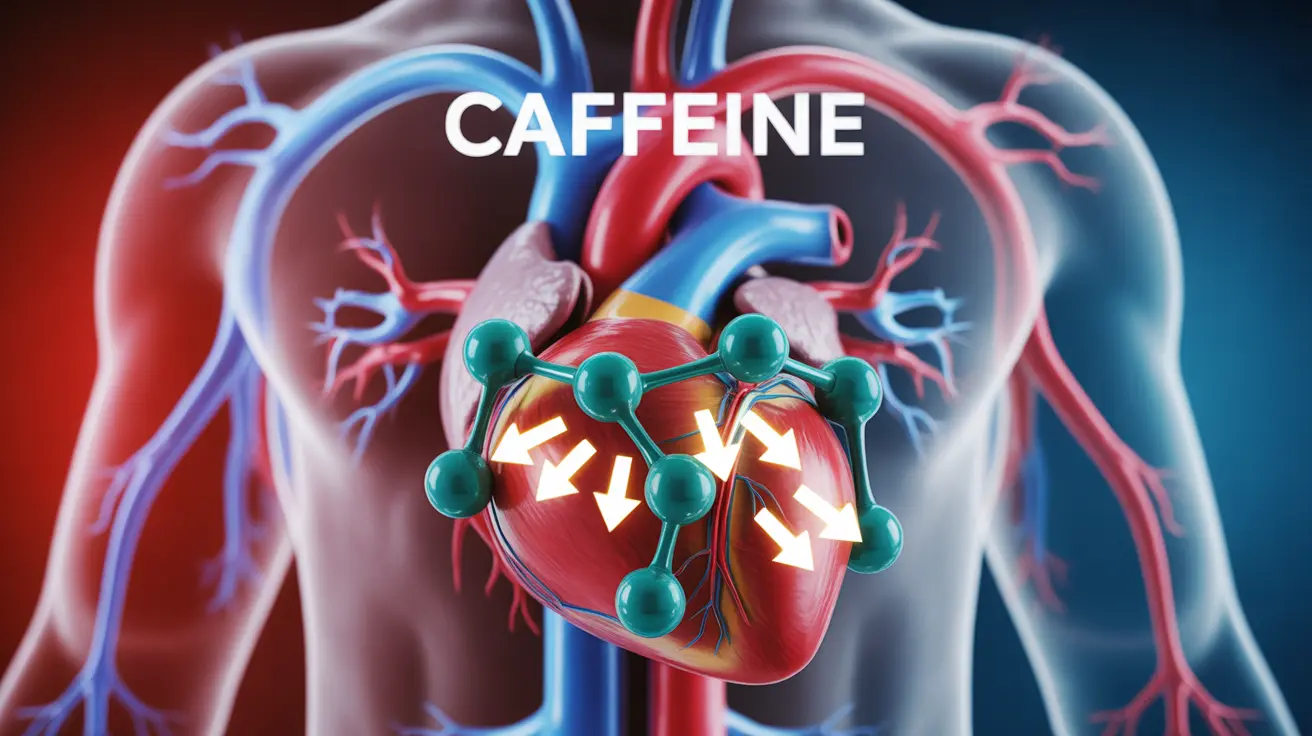For millions of people worldwide, caffeine is an essential part of their daily routine. However, growing concerns about the relationship between caffeine consumption and cardiovascular health have led many to question whether their coffee habit could be putting their heart at risk. Understanding the connection between caffeine intake and cardiovascular events like heart attacks and strokes is crucial for making informed decisions about consumption.
This comprehensive guide explores the latest scientific understanding of how caffeine affects heart health, safe consumption limits, and the balance between potential risks and benefits. Whether you rely on coffee, energy drinks, or other caffeinated beverages, knowing how these substances impact your cardiovascular system is essential for maintaining heart health.
How Caffeine Affects Your Cardiovascular System
Caffeine primarily affects the cardiovascular system by stimulating the central nervous system and increasing the release of stress hormones. This stimulation can lead to several immediate effects on the heart and blood vessels:
- Temporary increase in blood pressure
- Elevated heart rate
- Increased force of heart contractions
- Enhanced blood flow
- Potential heart rhythm changes
While these effects are typically temporary in healthy individuals, they can be more concerning for people with underlying heart conditions or those who consume excessive amounts of caffeine regularly.
Understanding Safe Caffeine Consumption Levels
The Food and Drug Administration (FDA) considers 400 milligrams of caffeine per day to be generally safe for healthy adults. This roughly translates to:
- 4-5 cups of coffee
- 10 cans of cola
- 2 energy drinks (depending on size and brand)
However, individual tolerance varies significantly based on factors such as body weight, metabolism, and overall health status. People with heart conditions or high blood pressure may need to consume less or avoid caffeine altogether.
Identifying Risk Factors and Warning Signs
Certain individuals may be more susceptible to caffeine's cardiovascular effects. Risk factors include:
- Pre-existing heart conditions
- High blood pressure
- Anxiety disorders
- Medication interactions
- Genetic variations affecting caffeine metabolism
Warning signs of excessive caffeine consumption can include:
- Heart palpitations
- Chest pain
- Severe anxiety
- Insomnia
- Tremors or jitters
The Benefits of Moderate Caffeine Consumption
While excessive intake poses risks, moderate caffeine consumption may offer several cardiovascular benefits:
- Improved blood flow
- Enhanced exercise performance
- Potential reduction in heart disease risk
- Antioxidant properties
- Decreased risk of certain arrhythmias
Frequently Asked Questions
Can drinking too much caffeine increase my risk of having a heart attack or stroke?
Yes, excessive caffeine intake can temporarily increase blood pressure and heart rate, potentially raising the risk of cardiovascular events in susceptible individuals. However, moderate consumption within recommended limits is generally considered safe for healthy adults.
How much caffeine is considered safe to avoid raising my blood pressure and heart rate?
The FDA recommends limiting caffeine intake to 400mg per day for healthy adults. This amount typically allows you to enjoy the benefits of caffeine while minimizing cardiovascular risks. However, individuals with heart conditions should consult their healthcare provider for personalized recommendations.
What are the effects of chronic high caffeine intake on the heart and blood vessels?
Chronic high caffeine consumption can lead to sustained increases in blood pressure, irregular heart rhythms, and increased stress on the cardiovascular system. Long-term excessive intake may contribute to the development or worsening of heart conditions.
Can caffeine from sources like coffee, energy drinks, and soda all add up to increase cardiovascular risk?
Yes, the cumulative caffeine intake from all sources contributes to your total daily consumption. Energy drinks can be particularly concerning as they often contain high amounts of caffeine along with other stimulants.
Are there benefits of moderate caffeine consumption for heart health despite the risks of high intake?
Moderate caffeine consumption has been associated with several cardiovascular benefits, including improved blood flow and potential protection against certain heart diseases. The key is maintaining consumption within recommended limits and being aware of your individual tolerance and risk factors.




